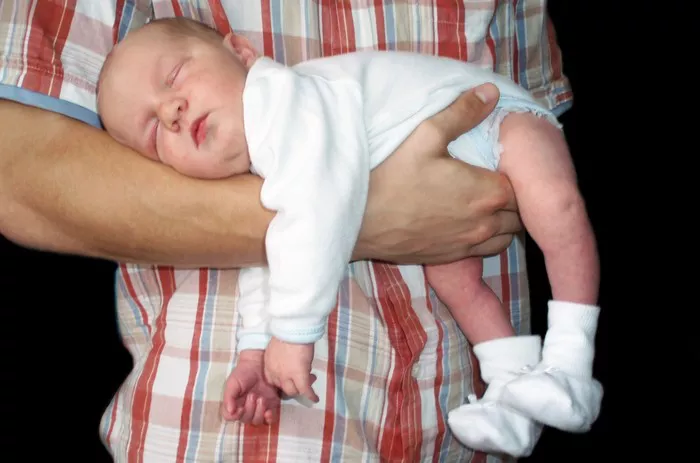Introduction and Reassurance:
As a new parent, the slightest sniffle or cough from your newborn can spark worry and concern. Rest assured, coughs and colds are common occurrences in infants and are usually nothing to fear. However, it’s essential to approach these symptoms with caution and seek guidance from healthcare professionals when needed.
Symptoms and Causes:
Newborns, with their still-developing immune systems, are susceptible to various respiratory infections that can manifest as coughs and colds. Common symptoms include a runny or stuffy nose, coughing, sneezing, mild fever, and fussiness. These symptoms are typically caused by viruses, such as the common cold or respiratory syncytial virus (RSV), although bacterial infections and allergies can also be culprits.
It’s crucial for parents to distinguish between a typical cough and cold and something more serious that requires immediate medical attention. Signs such as difficulty breathing, wheezing, high fever, persistent or worsening symptoms, dehydration, and unusual behavior should prompt a visit to the doctor or emergency room.
See Also: How to Help Your Newborn Through a Cold: A Parent’s Guide
Home Remedies and Treatments:
While there’s no cure for the common cold, there are several measures parents can take to alleviate their newborn’s discomfort:
Keeping the Baby Hydrated: Ensure your baby gets plenty of fluids, whether it’s breast milk or formula. Offer feeds more frequently than usual, as hydration is essential for recovery. Watch for signs of dehydration, such as fewer wet diapers or a sunken fontanelle.
Nasal Suction: A nasal aspirator can be a parent’s best friend when dealing with nasal congestion. Use it gently to remove excess mucus and help your baby breathe more comfortably. Remember to clean the aspirator after each use to prevent the spread of germs.
Humidifier: Adding moisture to the air with a humidifier can help ease congestion and soothe irritated nasal passages. Place the humidifier in your baby’s room, following the manufacturer’s instructions for safe use and regular cleaning.
Elevation: Elevating your baby’s head slightly during sleep can promote better drainage and make breathing easier. Use a firm mattress and avoid loose bedding to reduce the risk of suffocation.
Comfort Measures: Provide your baby with extra comfort and TLC during this time. A warm bath can help loosen congestion, while gentle massage and cuddling offer reassurance and warmth.
When to Call the Doctor:
While most coughs and colds in newborns are mild and self-limiting, there are instances when medical attention is necessary:
Difficulty Breathing or Wheezing: Any signs of respiratory distress warrant immediate attention.
High Fever: A rectal temperature of 100.4°F (38°C) or higher in a newborn under three months old requires prompt medical evaluation.
Dehydration: Watch for signs such as dry mouth, sunken eyes, decreased urine output, or lethargy.
Persistent or Worsening Symptoms: If your baby’s symptoms persist or worsen after several days, consult a healthcare provider.
Unusual Behavior: Trust your instincts. If your baby seems unusually lethargic, irritable, or unresponsive, seek medical advice promptly.
Preventative Measures:
While it’s impossible to shield your newborn from all germs, there are steps you can take to reduce their risk of respiratory infections:
Handwashing: Wash your hands frequently, especially before handling your baby or preparing their feeds.
Avoiding Close Contact: Limit exposure to sick individuals, particularly during cold and flu season.
Cleaning and Disinfecting: Regularly clean and disinfect commonly-touched surfaces, such as doorknobs, toys, and countertops.
Conclusion
In conclusion, coughs and colds are a normal part of infancy, but vigilance and proactive care can help manage symptoms and prevent complications. By staying informed, practicing good hygiene, and seeking medical advice when needed, you can navigate this common childhood ailment with confidence and peace of mind. Remember, you’re not alone in this journey—healthcare professionals are here to support you every step of the way.
FAQs
How long does cold and cough last in newborns?
It varies, but typically cold and cough symptoms in newborns last around 7-10 days. However, it’s essential to monitor their condition closely and consult a pediatrician if symptoms persist or worsen.
Can breast milk cure cough in babies?
Breast milk contains antibodies and nutrients that can help boost a baby’s immune system and alleviate symptoms of cough. While it may not directly “cure” a cough, it can certainly provide comfort and support the baby’s immune response.
Is it normal for a newborn to cough?
Occasional coughing is normal in newborns and infants, as their respiratory systems are still developing and they may experience mild irritation. However, persistent or severe coughing, along with other symptoms like difficulty breathing or feeding, should be evaluated by a healthcare professional.
Related topics:


